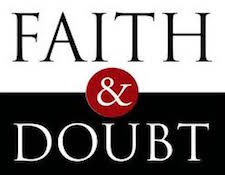It’s the time of year for saving money!
Most audiophiles fall into one of two predominate camps, those who believe because they hear, and those who believe but they require scientific evidence. Like so many other things in the practice of audio, believing in the one almost eliminates the possibility of trusting the other. Almost, but not completely as some audiophiles espouse both.
 Sometimes there are things in which we place our full measure of support, and by extension our complete faith, when doing so basically makes little sense. Consider, for instance, the fact that by the numbers, digital should be a superior format to analog. While dynamic range is generally considered superior in the digital format to its analog cousin, and the digital presentation is largely free of noise, pops, clicks and other distractions sometimes evident in an LP, no one can deny there are legions of audiophiles who will absolutely prefer the sound of analog – for any number of reasons. Playing an LP, for many audiophiles, will always be a preferable choice over a CD. There are still others that will typically choose digital. Regardless of what any numbers might indicate, it is patently obvious there are preferences of one versus the other. While I do like both analog and digital, there are those times when I absolutely prefer one to the other. Fortunately, I have both in my system so it’s a very easy choice to make.
Sometimes there are things in which we place our full measure of support, and by extension our complete faith, when doing so basically makes little sense. Consider, for instance, the fact that by the numbers, digital should be a superior format to analog. While dynamic range is generally considered superior in the digital format to its analog cousin, and the digital presentation is largely free of noise, pops, clicks and other distractions sometimes evident in an LP, no one can deny there are legions of audiophiles who will absolutely prefer the sound of analog – for any number of reasons. Playing an LP, for many audiophiles, will always be a preferable choice over a CD. There are still others that will typically choose digital. Regardless of what any numbers might indicate, it is patently obvious there are preferences of one versus the other. While I do like both analog and digital, there are those times when I absolutely prefer one to the other. Fortunately, I have both in my system so it’s a very easy choice to make.
Believing in the whole concept of break in would be another example. There has historically been pervasive disagreement in the validity of whether or not a component, speaker, cable, interconnect or power cord will ultimately sound better after being used for some measure of time than when brand new. I have read what seems to be well thought out explanations why break in actually happens. Not surprisingly, I’ve also read dissenting opinions why it does not. Yet, and I speak only for myself, I have heard virtually every component, cable and definitely speaker upgrade enable my system to deliver a recognizable degree of sonic improvement after a time as opposed to the sonic presentation when newly installed. When I hear these types of improvements, the concept of break in does not seem too difficult to believe. Hearing the improvements are the proof in the pudding. Explaining why I so believe is not as important to me as the belief that what I heard was factual.
 Additionally, consider the differences in tubed and transistor amps. A 20 watt per channel SET amp with pervasively high distortion might look on paper to be alarmingly inferior to a 100 watt per channel, low distortion, solid state amp. Yet, as anyone who owns one of those tubed amps knows, the sound can be positively magical and proponents will be hard pressed to change, regardless of what spec sheets may indicate. Conversely, there are those, like me, who prefer solid state amplifiers.
Additionally, consider the differences in tubed and transistor amps. A 20 watt per channel SET amp with pervasively high distortion might look on paper to be alarmingly inferior to a 100 watt per channel, low distortion, solid state amp. Yet, as anyone who owns one of those tubed amps knows, the sound can be positively magical and proponents will be hard pressed to change, regardless of what spec sheets may indicate. Conversely, there are those, like me, who prefer solid state amplifiers.
I have always felt like these dichotomies may be explained by differences in personal preferences. Just as why we like one brand of car over another, or one food compared to another. Making these choices is no more of a mystery than we just simply like what we like. We don’t feel compelled to offer any reasons why, only that those preferences are rightfully ours alone.
And while that is substantially a logical representation, it also demands a certain amount of trust in our own belief structure. Having a preference is fine, but we also need to trust in the fact that same preference is true and correct. Even if the truth and correctness is for our own use alone, we still need to believe. We need to have the confidence in our convictions that our preferred format choice is correct. We need to have the confidence in our convictions that the sudden improvement in how that new upgrade magically sounds better actually does. We need to have the confidence in our convictions that, despite what the numbers may indicate, the amp that should in no way sound remarkable actually does. We need not worry about what all the pundits may tell us, or what we might read that causes us to question our own long held beliefs. We need to have the strength in our own convictions that despite whatever may be presented in contradiction to that which we believe, or in support of that with which we vehemently disagree, the foundations of our beliefs are absolutely true and correct.
Sure sounds like a faith based hobby to me.





